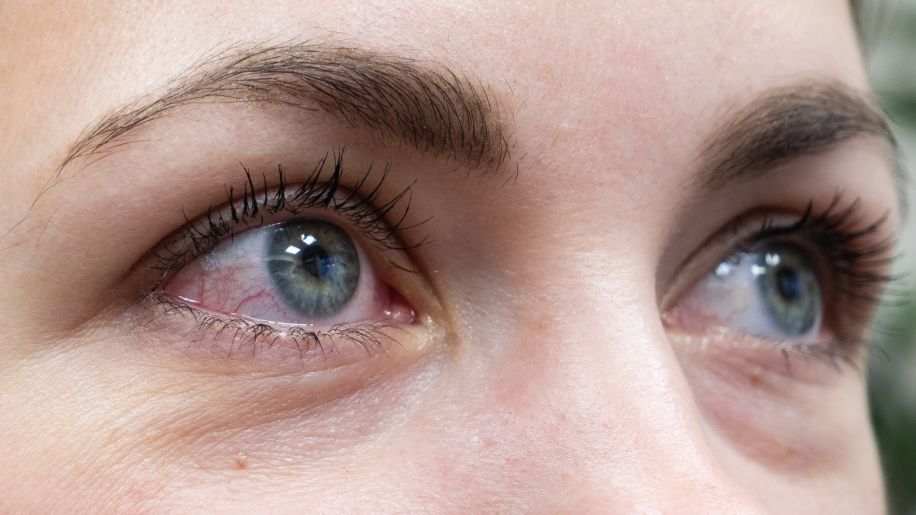7 vision problems you shouldn't ignore
Keep your eyes healthy and watch out for these common vision problems.
Updated on July 1, 2025

So much of what we experience, learn and enjoy in life we owe to the gift of sight. Our eyes are delicate and amazingly complex, and they require TLC to stay at their peak. That's especially true as we get older, when vision and eye health naturally decline. To help preserve your vision well into your golden years, heed these warning signs.

Blurred vision
For many people, blurred vision is just a normal part of the aging process. One day you suddenly realize you're squinting all the time or holding books at arm's length. Blurry vision is usually a sign of a common problem called refractive error, such as nearsightedness or farsightedness. If left untreated, it can lead to headaches, eye strain, or seeing glares or halos around bright lights. So do yourself (and your eyes) a favor and talk to your doctor about glasses, contacts or laser surgery.

Double Vision
Double vision (diplopia) can mean you're nearsighted or farsighted. But it can also point to something much more serious: diabetic retinopathy. Diabetes damages tiny blood vessels in the retina and is the leading cause of blindness in adults. The disease can also make you see rings, flashing lights, blank spots, or dark spots. You might also have eye pain or pressure or have trouble seeing out of the corners of your eyes. If you have diabetes, control your blood sugar levels and get your eyes tested yearly.

Cloudy Vision
Having cataracts is like looking through a dirty windshield. Caused by a clouding of the eye's lens, a cataract in your eye prevents light from being focused clearly on the retina. If you've also noticed that colors seem faded or lights are too bright, you should see your doctor. A cataract can develop slowly, and it may just need to be watched. But eventually, a minimally invasive surgery may be necessary.

Night Blindness
Poor night vision is a common sign of cataracts or nearsightedness. But it can also be caused by a vitamin A deficiency, some medications, or a degenerative eye disease called retinitis pigmentosa. If you're having trouble seeing in dim or dark lighting, it could put you in harm's way when you're out and about. Keep yourself safe by talking to your doctor about this problem.

Tunnel Vision
If your vision seems clear in the center but dark around the edges, it could be tunnel vision. One of the most common causes is glaucoma, which is when the pressure inside the eye slowly rises and damages the optic nerve. There's no cure, but with early detection and treatment, the disease can be slowed. Sometimes, people have the opposite problem–being able to see clearly around the edges and not straight ahead. This problem is usually caused by age-related macular degeneration (AMD), which destroys the cells responsible for central vision. Like glaucoma, early detection and treatment can help preserve your remaining eyesight.

Floaters and Flashes
Floaters are those annoying little specks that drift about in your field of vision and seem to move if you try to focus on them. They're usually caused by the aging process, as parts of your inner eye shed and clump together. Most floaters are harmless. But if you notice a sudden increase or see flashes of light, call your eye doctor ASAP. These symptoms could signal a retinal tear or detachment.

Red Eyes
Most people have had pink eye (conjunctivitis), a very common and very contagious eye infection. It can cause redness, itching, and crusting, and usually clears up on its own within a week or two. But if there's any pain or decreased vision, you'll want to see your doctor. It could be a sign of a more serious problem, like uveitis or glaucoma.
Featured Content

article

article

article
